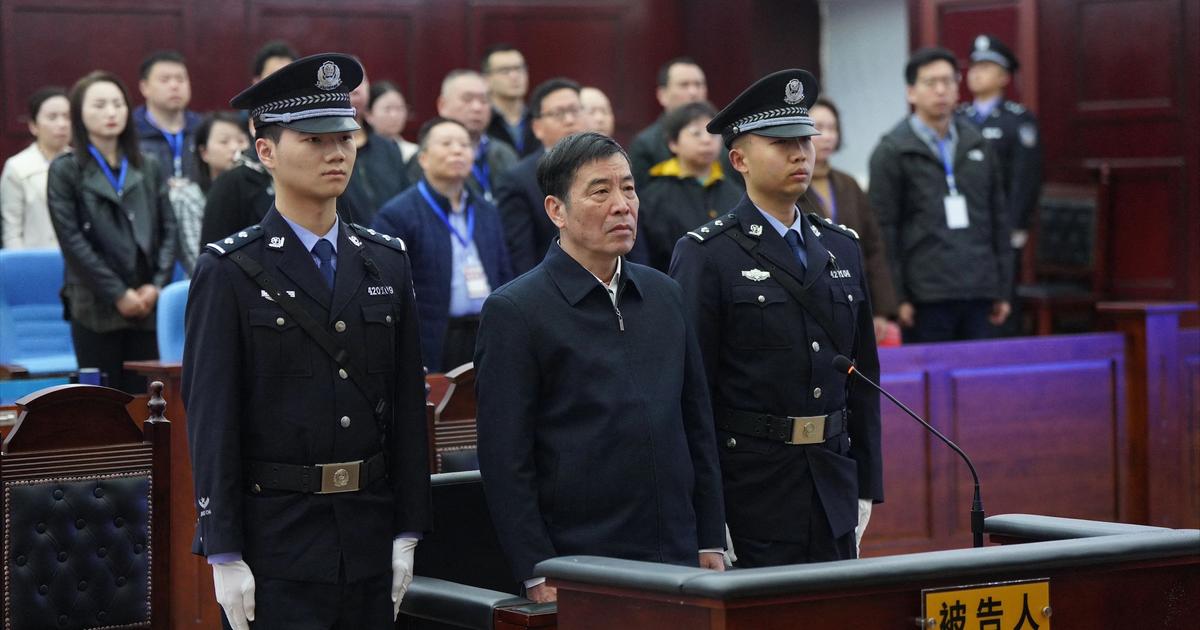The 40-year-old Mrs. Kuo, who lives in Mei Foo New Village, received a phone call from a fake mainland official in June last year, saying that she was involved in a criminal case. During the period, the fraudsters drafted a fake business contract, taught her to avoid bank scrutiny, and transferred the money in 14 batches to the "Old Qian". Account”, which lasted as long as 10 months, with a total loss of HK$65 million.
When all her savings were defrauded, not only was she unaware, she also "referred" her husband's mobile phone information to the scammer.
When the swindler "buried his hands", his husband became suspicious and called the police in April this year, finally revealing this year's largest fraud case.
Yang Zhenyu, senior inspector of the Sham Shui Po Police District Serious Crime Squad, pointed out that the police received a report from a 40-year-old housewife on April 3, saying that in June last year, they received a call from a self-proclaimed Liaison Office official, falsely claiming that she was suspected of having a relationship with a case. It is related to the case of distributing fake new crown vaccine information in the Mainland, and provides the victim with a website posing as the People’s Procuratorate’s website to check the case he is involved in, and then asks the victim to enter personal information and bank account password for investigation purposes.
From June to September last year, the victim met with four swindlers who were about 30 years old and spoke fluent Mandarin on several occasions according to the swindler's instructions, and received mobile phone numbers from the swindlers, claiming to cooperate with domestic law enforcement. The authorities need to know the whereabouts of the victim at any time.
During the meeting, the scammer asked the victim to insert her phone card into the scammer's phone, but the malicious program installed on the phone had intercepted the victim's one-time password (OTP) for online banking.
In the last meeting, the scammer handed over a false business contract to the victim, claiming to assist the female victim to explain to the bank that she had legitimate business sources with the collection company, thereby avoiding bank scrutiny.
The cover of the contract is printed with the victim's name, and the content is carefully detailed, including the terms and conditions that both parties need to abide by and the content of the contract, as well as the dummy bank account information, and the victim's name and signature at the end of the page.
The whole process of defrauding lasted 10 months. From June last year to March this year, the swindler asked the victim to hand over a security deposit, and transferred a total of 46 million Hong Kong dollars in 14 transfers to a designated account on the contract.
The fraudsters also transferred funds through online banking without the victim's knowledge, with a total of about HK$19 million.
It is reported that the female victim, surnamed Shen, is a wealthy daughter who inherited a considerable inheritance earlier.
She lives in Mei Foo Sun Chuen, Kowloon.
Her husband is in business and has another property in the Changsha Bay area.
After receiving the scammer's phone call, she obeyed the scammer's advice. In addition to giving all her savings to the other party, she did not hesitate to press on the building to get cash. She also falsely claimed that her husband's business was going to turn around, and she borrowed money from her mother, and then transferred it to the scammer. in the account given to her.
During the period, the bank staff asked her why she transferred large sums of money many times.
She actually "teachs the way" according to the swindler, saying that she "is used for investment", so that the bank no longer asks.
When the victim was defrauded of all her savings, she still did not realize that she was in a scam, she was convinced that she had fallen into a criminal case, and the deceiver planned to use the same trick to turn to her husband. deal with.
The total loss in the case is HK$65 million, which is very large.
The case was classified as "obtaining property by deception" and was handed over to the Sham Shui Po District Crime Squad for follow-up. No arrests have been made so far.
Fraud cases increased by 22.8% compared with the same period of the same period, and half of the cases of "Impersonate Officials Fraud"
Lu Hongji, senior inspector of the Anti-Deception Coordination Center of the Commercial Crime Bureau, pointed out that the trend of deception cases has increased. Until January 2022, the police received a total of 102 telephone deception cases, an increase of 19 cases or an increase of 22.8% from 83 cases in the same period last year. %, and the loss amounted to HK$43.44 million.
Among the 102 deception cases, "Impersonate Official Deception" and "Guess Who I Am" accounted for half each.
Among them, the "fake official deception" can manipulate the victim's bank account, allowing the victim to "lose their savings and clear their pockets."
The 3-step song of the deception case (screenshot of the police online press conference)
The three-step fraud case falsely claimed that the victim smuggled anti-epidemic materials
(1) Fraudsters call citizens with pre-recorded voices, claiming to be courier companies, banks or government departments, etc., and then ask citizens to press the button to select the listening language.
(2) Claiming that the victim was involved in a criminal case, the citizen was referred to a fake Mainland official, who claimed that the citizen had broken the law in the Mainland, used the epidemic as a cover, claimed that the victim’s identity had been stolen, and had mistakenly visited a high-risk area and listed it as The close contacts also pointed out that the victim had smuggled anti-epidemic items and smuggled vaccines.
At this time, the scammer will point out that he needs to provide his online banking information for quick review, and can also show the victim his personal information such as his photo, name and ID card.
(3) Finally, in the name of investigation, the scammer will ask the victim to download an app or log in to a fake website, and then enter the online banking information.
Manipulate the victim's bank account and eventually transfer all the deposits in the account.
Fraudsters impersonate mainland law enforcement officers to display arrest warrants containing personal data
Fraudsters will also use some commonly used special techniques to first obtain the victim's information through illegal channels, such as name, ID number, photo, and then impersonate the law enforcement officers of mainland courts and public security agencies to create some fake official documents. Continued And show the victim, in order to make the victim believe that they are real law enforcement officers.
In addition, the swindler will instruct the victim to log in to the fake judicial website to check the case he is involved in, during which he will be asked to enter his online banking and personal information.
Fraudsters will then send fake links to victims, instructing them to download malicious programs called "Security Protection" to steal online banking information and one-time passwords (OTPs), which are often unavailable on official app platforms.
The scammer will also instruct the victim to make a video call, so that the victim can see how the scammer is wearing a uniform, and will display fake public security documents to increase the credibility of the scammer by taking advantage of the general belief in authority.
Use instant messaging software to allow victims to report their whereabouts, with the purpose of monitoring victims and isolating outside contacts.
Police urge the public not to answer suspicious calls and pay more attention to the behavior of family members
Senior Inspector Lu Hongji of the Anti-Fraud Coordination Center of the Commercial Crime Investigation Bureau pointed out that do not answer unfamiliar calls with the prefix "+852", it is very likely to be a fraudulent call posing as a local call, even if the unfamiliar caller can tell the arrest warrant with personal information , it does not mean that the swindler is a law enforcement officer; real law enforcement officers investigate the case and will not ask you for your bank account password over the phone; do not insert your phone card into someone else’s phone; care more about your family and pay attention to their There is no sign of sincerity; if in doubt, please call the "Anti-Fraud Hotline 18222" for inquiries.









